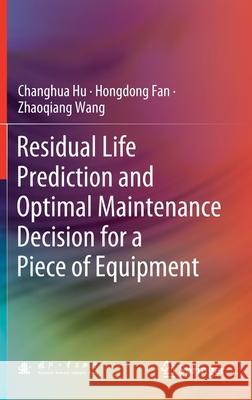Residual Life Prediction and Optimal Maintenance Decision for a Piece of Equipment » książka
topmenu
Residual Life Prediction and Optimal Maintenance Decision for a Piece of Equipment
ISBN-13: 9789811622663 / Angielski / Twarda / 2021 / 270 str.
Kategorie:
Kategorie BISAC:
Wydawca:
Springer
Język:
Angielski
ISBN-13:
9789811622663
Rok wydania:
2021
Wydanie:
2022
Ilość stron:
270
Waga:
0.58 kg
Wymiary:
23.39 x 15.6 x 1.75
Oprawa:
Twarda
Wolumenów:
01
Dodatkowe informacje:
Wydanie ilustrowane











